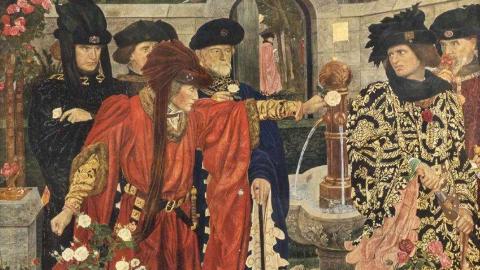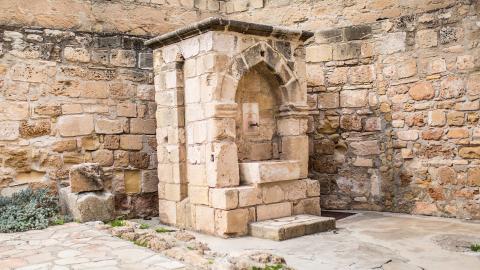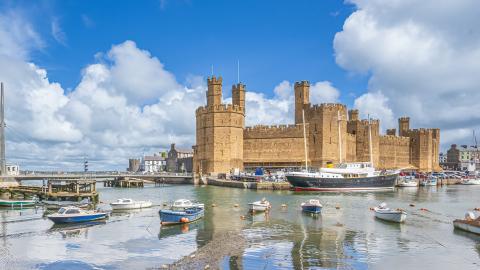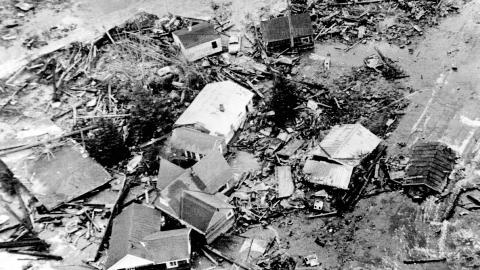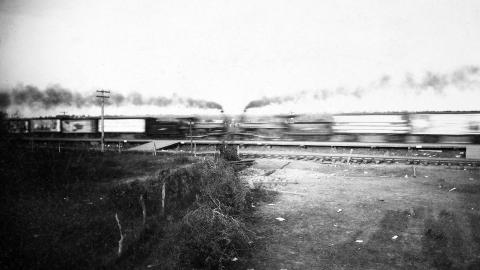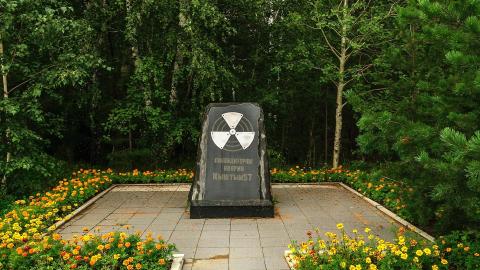
Everything you need to know about Curse of the Ancients with Alice Roberts
Professor Alice Roberts reveals how scientists are unearthing the evidence for cataclysmic events in the past and their disastrous consequences
In Curse of the Ancients with Alice Roberts, Professor Alice Roberts reveals how scientists are unearthing evidence of cataclysmic events of the past and their disastrous consequences. While ancient societies couldn’t truly understand the cause of these events, they could have considered themselves cursed. However, this series uses the best of modern science to determine the true reasons behind these events.
Professor Alice Roberts is the perfect expert host
Professor Alice Roberts is a leading biological anthropologist and an expert in ancient diseases and early human civilisation. Throughout the five-episode run, Alice guides viewers around the world and across the medieval timeline to learn more about the trials and tribulations of our ancestors.
Along with a host of other specialists, Alice expertly covers the period from 6200 BCE to 1486 CE and leading a journey of epic discovery around the most important landmarks from history. She has a wealth of experience presenting other factual television shows and is the perfect host for this unparalleled investigation of ancient civilisations.
Ancient plagues and pandemics
Long before the deadly smallpox, influenza and COVID-19 pandemics of modern times, our ancient ancestors were fighting outbreaks of numerous plagues. While their understanding of science behind the pandemics was hazy at best, the general consensus was they were some forms of punishment from the gods, civilians were well aware of the untold pain and suffering.
The first plague pandemic lasted for a couple of hundred years from 541 BCE to approximately midway through the 8th century. It’s estimated that as many as 100 million people could have lost their lives across Europe and the Near East. This equates to almost 60% of the population. The Byzantine Empire was severely affected, and historians believe it was a major contributor to its downfall.
Devastating natural disasters
Not only did our ancestors have to fight off deadly diseases they also had to contend with all manner of natural disasters. These days science can predict when some disasters, such as volcanic eruptions, might occur, but back in the ancient and medieval times they were largely kept in the dark. Just another reason why they must have felt cursed.
The Minoan eruption devastated Thera (now known as Santorini) in approximately 1600 BCE. It is widely regarded as one of the largest volcanic events in history and wiped out the Minoan settlements. The resulting earthquakes and tsunamis destroyed other nearby islands, including the Crete coast.
Doggerland is an underwater bank off the east coast of England, but 8000 years ago it was home to several human civilisations and connected the United Kingdom with the rest of Europe. However, a mixture of melting ice caps and tsunamis buried it all beneath the sea.
Battles and wars on a monumental scale
History is littered with massive battles as different forces tried to take control of as much land as possible. Curse of the Ancients covers many of these throughout the series, from Viking invasions to the expansion of the Roman Empire. One of the most mysterious attacks though happened on a small island off the coast of Sweden. Approximately 250 civilians were executed with very limited signs of resistance. Can Alice get to the bottom of what really happened?
Elsewhere, the Ancient Egyptians have appeared to face continuous attacks from a group known as the ‘Sea Peoples’ around 1000 BCE. While ancient texts show that the Egyptians were victorious in these clashes, they may have had long-term damaging effects on the civilisation.
Roman Empire’s Rise and Fall
The Ancient Roman Empire is widely regarded as perhaps the strongest polity in history, but if it was so great why is it not still around today? Curse of the Ancients documents its gradual collapse, including five centuries of over-expansion and increasing misrule.
It was also a prime target for attacks from every angle. One of the bloodiest conflicts in history came when the Roman army fought and narrowly defeated the Huns from the east, led by the feared and barbaric leader, Attila






